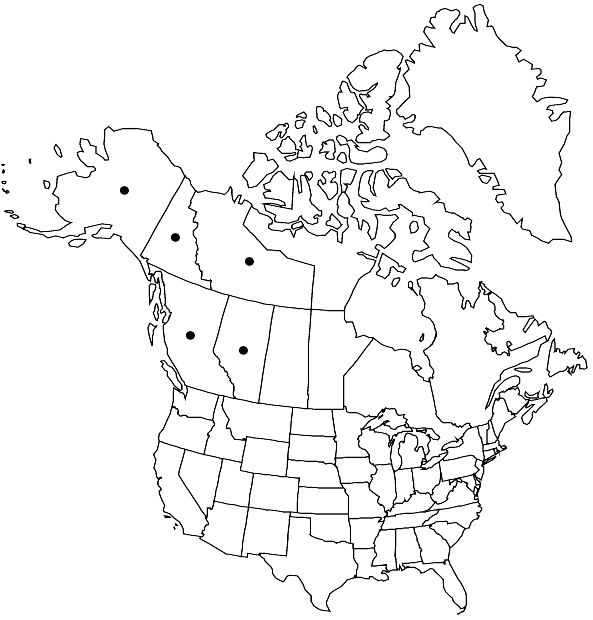Encalypta mutica
Tromsø Mus. Aarsh. 21: 91. 1899,.
Stems 5–8 mm, central strand weakly differentiated, small. Leaves elliptic to ligulate or lingulate, 1–2 mm; apices muticous, obtuse; margins plane to weakly recurved along one margin; costa subpercurrent, narrow, papillose distally; laminal cells 10–15 µm; basal cells rectangular, 25–75 µm, smooth; basal marginal cells not differentiated. Specialized asexual reproduction absent. Seta 4–8 mm, brownish red to black. Capsule short-cylindric, 1–2.5 mm, smooth to weakly striate, yellowish brown, exothecial cells rectangular, walls weakly thickened; peristome absent; operculum 0.5 mm. Calyptra 2–4 mm, smooth, lacerate at base. Spores 22–28 µm, papillose, dark brown.
Habitat: Disturbed, exposed soil or soil over rocks
Distribution

Alta., B.C., N.W.T., Yukon, Alaska, nw Europe.
Discussion
Encalypta mutica is a tiny species found on soil in naturally disturbed areas. It might be confused with E. flowersiana as both taxa are absent leaf awn and peristome, but E. mutica has much shorter leaves, smaller spores with granulate ornamentation, and an almost smooth capsule.
Selected References
None.